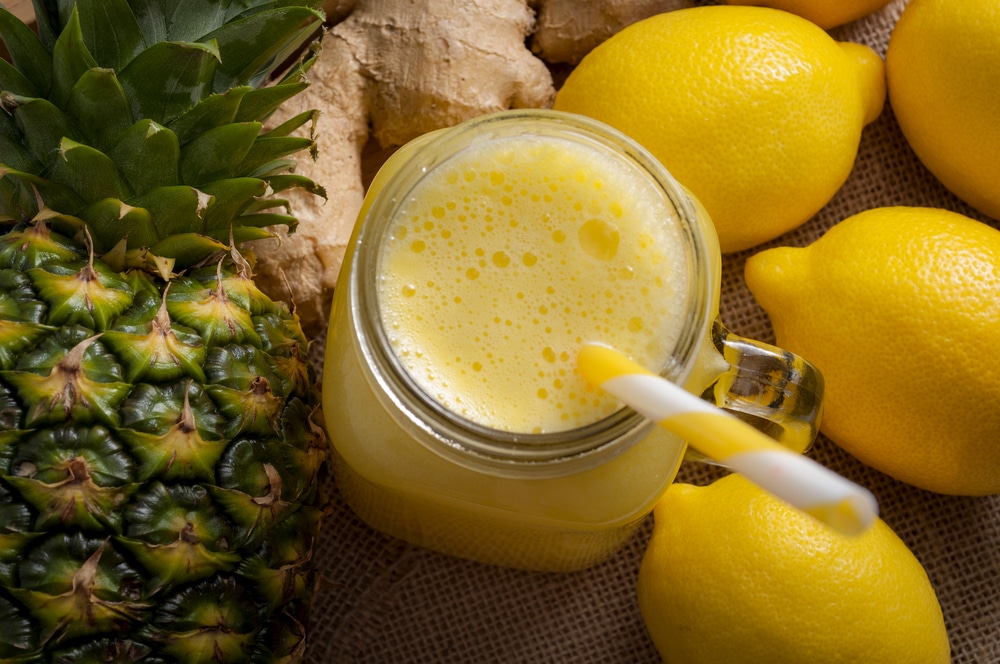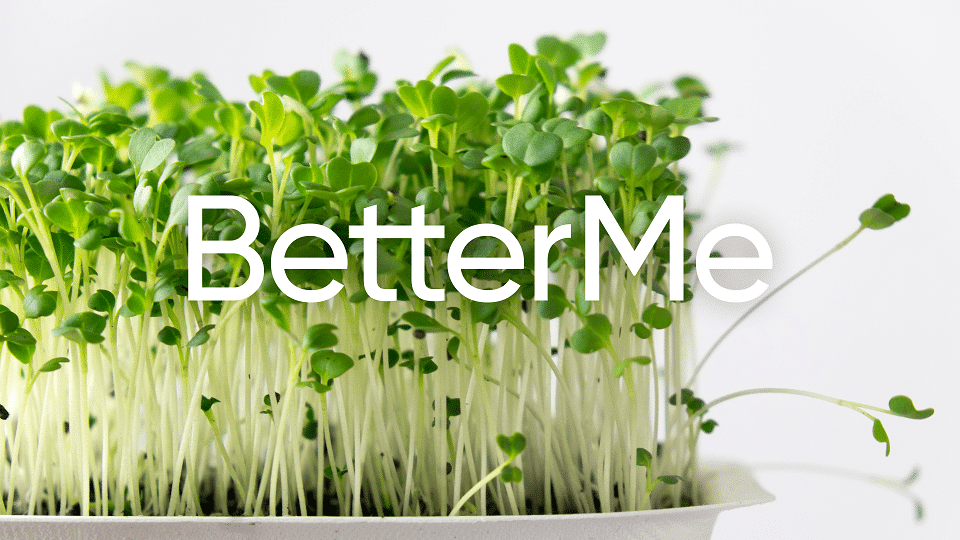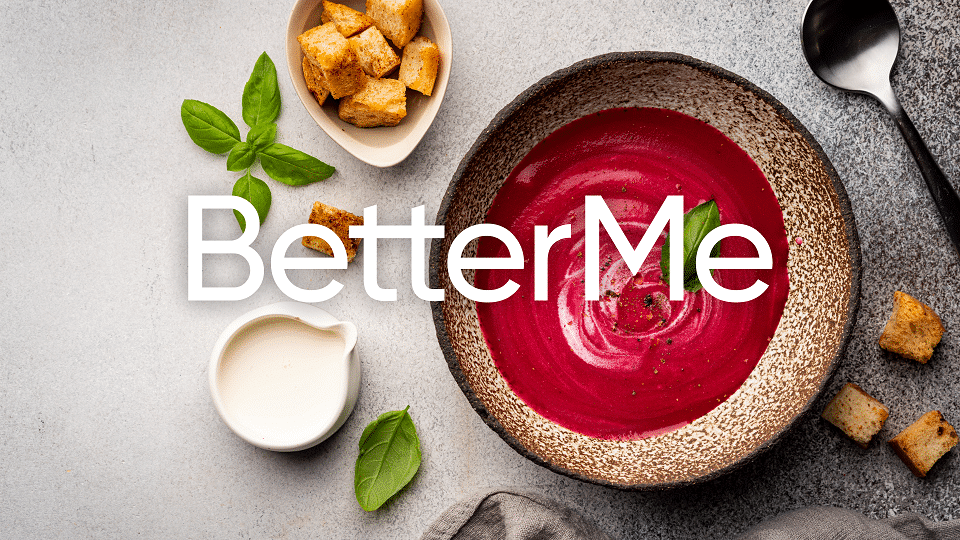Most people have mastered the weight-loss basics– eat less; move more. But what if you’re doing all the right things and the scale still isn’t budging? The problem might be digestive enzymes. Digestive enzymes are proteins that help your body break down food into nutrients so they can be absorbed. They are found in your saliva, pancreas, and small intestine. Your body needs enzymes to function properly. But when you have too few digestive enzymes, it can lead to problems digesting and absorbing nutrients from the foods you eat. This is likely to lead to unintended weight loss, which can be dangerous if not turned around. Here’s what you need to know about digestive enzymes and weight loss.
Digestive Enzymes And Their Functions
Your digestive system is responsible for breaking down the food you eat into smaller, more easily absorbed pieces. This process starts in your mouth with chewing and saliva and continues as the food makes its way through your stomach and intestines.
Along the way, your digestive system relies on a variety of enzymes to help with the breakdown.
There are three main types of digestive enzymes:
Proteases
Proteases are enzymes that break down proteins into smaller peptides and amino acids. They are produced in your pancreas and small intestine. Your pancreas produces several different proteases, including trypsin, chymotrypsin, elastase, and carboxypeptidase (3).
Amylases
Amylases are enzymes that break down carbohydrates, such as starch and sugars, into smaller molecules. They are produced in your saliva, pancreas, and small intestine (3).
Lipases
Lipases are enzymes that break down fats into smaller molecules. They are produced in your pancreas and small intestine (3).
Read More: Foods That Ferment In The Colon And Why Avoiding Them May Improve Digestive Health
What Disrupts Digestive Enzymes?
Digestive enzymes are important for proper digestion and nutrient absorption. Without them, you would not be able to properly break down the food you eat and absorb the nutrients your body needs.
There are a few things that can disrupt the production of digestive enzymes, including:
Aging
As you age, your body may produce fewer digestive enzymes. This can lead to indigestion and other problems (12).
Disease
Certain diseases, such as celiac disease, cystic fibrosis, and pancreatitis, can disrupt the production of digestive enzymes (4).
Surgery
Gastric bypass surgery and other procedures that remove part of the stomach or intestines can also disrupt digestive enzyme production (11).
What Are The Symptoms Of Digestive Enzyme Deficiency?
If you’re not producing enough digestive enzymes, it can lead to problems with digestion and nutrient absorption. This can ultimately lead to unintended weight loss (1).
When you don’t digest food properly, it can ferment in your gut and lead to the production of gas and bloating (1).
In addition, undigested food can also lead to the growth of harmful bacteria in your stomach. This can cause inflammation and disrupt the balance of good and bad bacteria in your gut (1).
Finally, poor digestion can also lead to nutrient deficiencies (1).
All these factors can cause a variety of symptoms, including (1):
- Stomach pain
- Bloating
- Diarrhea
- Constipation
- Weight gain or weight loss
- Fatigue
If you wish to free yourself from all the extra pounds that have been weighting you down for way too long, start using the BetterMe app and overhaul your entire life!
What Happens When You Start Taking Digestive Enzymes?
When your body doesn’t have enough digestive enzymes, it can lead to problems like indigestion, nutrient deficiencies, and weight loss (1).
Digestive enzymes are available in supplement form. They are also found in some foods, such as pineapple and papaya.
Taking a digestive enzyme supplement can help your body break down food and absorb the nutrients it needs. This can help maintain a healthy weight and improve overall health (4).
Here is how it works:
- Digestive enzymes help your body break down food.
- When food is properly digested, the nutrients are absorbed into your bloodstream.
- Nutrients are used by your cells to create energy.
- When you have more energy, you are more likely to be active and maintain a healthy weight.
Do Digestive Enzymes Make You Lose Weight?
By themselves, digestive enzymes will not cause you to lose weight. They are normally prescribed for people who have lost weight unintentionally because they have problems digesting and absorbing nutrients. These people are likely to experience weight gain when they start taking digestive enzymes, which for them is a positive thing.
Improving the ability to digest food and absorb nutrients can help a person to have more energy, correct nutritional deficiencies, improve their overall health and maintain a healthy weight.
Read More: What Is The Best Diet For Indigestion? How To Manage Your Symptoms With Food
Do Digestive Enzymes Speed Up Metabolism?
Your metabolism is the process your body uses to convert food into energy. A “fast” metabolism means your body can quickly convert food into energy and use that energy for bodily processes, while a slow metabolism means it takes longer for your body to do so.
Several things affect your metabolism, including your age, body composition, and activity level. When you take digestive enzymes, they help your body break down food and absorb the nutrients. This process provides the energy that fuels your bodily processes and daily activities.
However, there is no evidence to suggest that taking digestive enzymes will help you lose weight or speed up your metabolism. If you’re looking to boost your metabolism, there are other things you can do, such as exercising more and eating a healthy diet.
Are Digestive Enzymes Safe?
Digestive enzymes are generally safe for most people, especially if they are recommended by their doctor, which is usually why people take them. However, side effects are possible. The most common side effect is bloating. Taking enzymes with food may help reduce this side effect (4).
People with certain medical conditions, such as celiac disease, cystic fibrosis, and pancreatitis, should talk to their doctor before taking digestive enzymes.
Pregnant women and young children should also speak to a doctor before taking digestive enzymes.
How To Take Digestive Enzymes?
Digestive enzymes are available in supplement form. It’s typically best to take them before a meal, so they are ready to do their job of helping you digest the food you eat.
As with any supplement, it’s important to follow the instructions on the bottle. You should also speak to your doctor before taking digestive enzymes. If you are taking them, it’s probably because your doctor recommended them.
Yanking yourself back in shape has never been so easy with our game-changing fitness app! Start transforming your life with BetterMe!
Natural Sources Of Digestive Enzymes
In addition to supplements, there are some foods that contain natural digestive enzymes. These include (2):
Pineapple
Pineapples are the most well-known source of digestive enzymes. They contain an enzyme called bromelain, which helps break down protein.
Papaya
Papayas contain an enzyme called papain, which aids in the digestion of protein.
Kiwi
Kiwis contain an enzyme called actinidin, which helps break down protein.
Honey
Honey contains an enzyme called amylase, which helps break down carbohydrates.
Raw Sauerkraut
Raw sauerkraut contains a bacteria called lactobacillus, which may aid in the digestion of lactose.
Kimchi
Kimchi is a type of fermented cabbage that contains the bacteria lactobacillus, which may aid in the digestion of lactose.
Kefir
Kefir is a fermented milk drink that contains an enzyme called lactase from the bacteria in it, which helps break down lactose.
Yogurt
Yogurt contains bacterial lactase, which helps break down lactose.
Mango
Mangoes contain an enzyme called amylase, which helps break down carbohydrates.
How To Improve Your Gut Health Naturally?
While digestive enzyme supplements are a convenient way to improve your gut health, you can achieve the same result with some diet and lifestyle changes, such as:
Eating A Fiber-Rich Diet
Probiotics are a well-known gut-friendly food. They are live microorganisms that can improve your gut health. They’re found in fermented foods like yogurt, kefir, and sauerkraut.
Fiber provides food for probiotics, helping support the populations of good bacteria in your gut.
Fiber is also beneficial for gut health in its own right. It helps keep things moving along by maintaining regularity and preventing constipation (8).
What’s more, fiber has been linked to a reduced risk of several digestive disorders, including Crohn’s disease and irritable Bowel Syndrome (IBS) (8).
Avoiding Processed Foods
Highly processed foods are one of the worst things you can eat for gut health. They’re high in sugar and low in fiber, which can disrupt the delicate balance of your gut microbiome.
Processed foods also contain additives and preservatives that can damage your gut lining and contribute to inflammation. Inflammation is a major factor in many gut disorders, such as Crohn’s disease and IBS (2).
Whole foods are the opposite of ultra processed foods. They’re minimally processed, if at all, and they’re packed with nutrients that are essential for gut health.
Whole foods include fresh fruits and vegetables, whole grains, legumes, nuts, and seeds. These foods are rich in fiber, vitamins, minerals, and antioxidants. They’re also low in added sugar and unhealthy fats.
Quitting Smoking
Cigarettes contain over 4,000 chemicals, many of which are toxic. These chemicals can damage your gut lining and contribute to inflammation (9).
As mentioned above, inflammation can cause major gut disorders, such as Crohn’s disease and IBS. Quitting smoking is one of the best things you can do for your gut health (9).
Exercising Regularly
The benefits of regular exercise go far beyond gut health. Exercise has been linked to a reduced risk of heart disease, stroke, type 2 diabetes, and some types of cancer (6).
But exercise is also good for your gut. It helps improve digestion and prevents constipation. What’s more, it can help reduce the risk of diverticulitis, a condition that affects the digestive system (6).
Diverticulitis is a serious condition that can lead to severe complications. However, it’s preventable with a healthy lifestyle.
Reducing Stress
Chronic stress can have a negative impact on gut health. It can damage the gut lining and contribute to inflammation, which, again, is a major factor for gut disorders (10).
What’s more, stress can interfere with digestion and contribute to constipation. It can also make you more susceptible to illness (10).
Reducing stress is essential for gut health. There are many ways to do this, including exercise, meditation, and yoga.
Getting More Sleep
Sleep is one of the most underrated aspects of gut health. Most people don’t get enough sleep, and it can have a serious impact on gut health.
Sleep deprivation can reduce gut microbiome diversity, damage the gut lining and contribute to inflammation, which is a threat to your gut health (5).
What’s more, sleep deprivation, like stress, can disrupt your digestion, which may lead to constipation. It can also potentially increase the risk of illness (5).
Getting enough sleep is essential for gut health. Most adults need 7 to 9 hours of sleep per night.
The Bottom Line
Digestive enzymes are important for proper digestion and nutrient absorption. Without them, you may experience indigestion, nutrient deficiencies, and unintentional weight loss.
If you have a deficiency, taking a digestive enzyme supplement can help your body break down food and absorb the nutrients it needs, which can help you maintain a healthy weight and improve overall health.
Making lifestyle changes can also help improve your gut health and manage your weight. However, they’re not a cure-all. If you have a gut disorder, it’s important to see a doctor for treatment. In some cases, medication may be necessary to control symptoms.
Get your personalized
meal plan!
DISCLAIMER:
This article is intended for general informational purposes only and does not serve to address individual circumstances. It is not a substitute for professional advice or help and should not be relied on for making any kind of decision-making. Any action taken as a direct or indirect result of the information in this article is entirely at your own risk and is your sole responsibility.
BetterMe, its content staff, and its medical advisors accept no responsibility for inaccuracies, errors, misstatements, inconsistencies, or omissions and specifically disclaim any liability, loss or risk, personal, professional or otherwise, which may be incurred as a consequence, directly or indirectly, of the use and/or application of any content.
You should always seek the advice of your physician or other qualified health provider with any questions you may have regarding a medical condition or your specific situation. Never disregard professional medical advice or delay seeking it because of BetterMe content. If you suspect or think you may have a medical emergency, call your doctor.
SOURCES:
- Digestive diseases (2021, medlineplus.gov)
- Digestive Enzymes (2017, clinicaleducation.org)
- Digestive Enzymes – The Exocrine Pancreas (n.d., nih.gov)
- Digestive Enzyme Supplementation in Gastrointestinal Diseases (2016, nih.gov)
- Gut microbiome diversity is associated with sleep physiology in humans (2019, nih.gov)
- Health Benefits of Exercise (2018, nih.gov)
- New evidence links ultra-processed foods with a range of health risks (2019, bmj.com)
- Role of the gut microbiota in nutrition and health (2018, bmj.com)
- Smoking and the Digestive System (n.d., hopkinsmedicine.org)
- Stress, depression, diet, and the gut microbiota: human-bacteria interactions at the core of psychoneuroimmunology and nutrition (2019, nih.gov)
- The effect of bariatric surgery on gastrointestinal and pancreatic peptide hormones (2016, sciencedirect.com)
- What really declines with age? (2007, nih.gov)
















